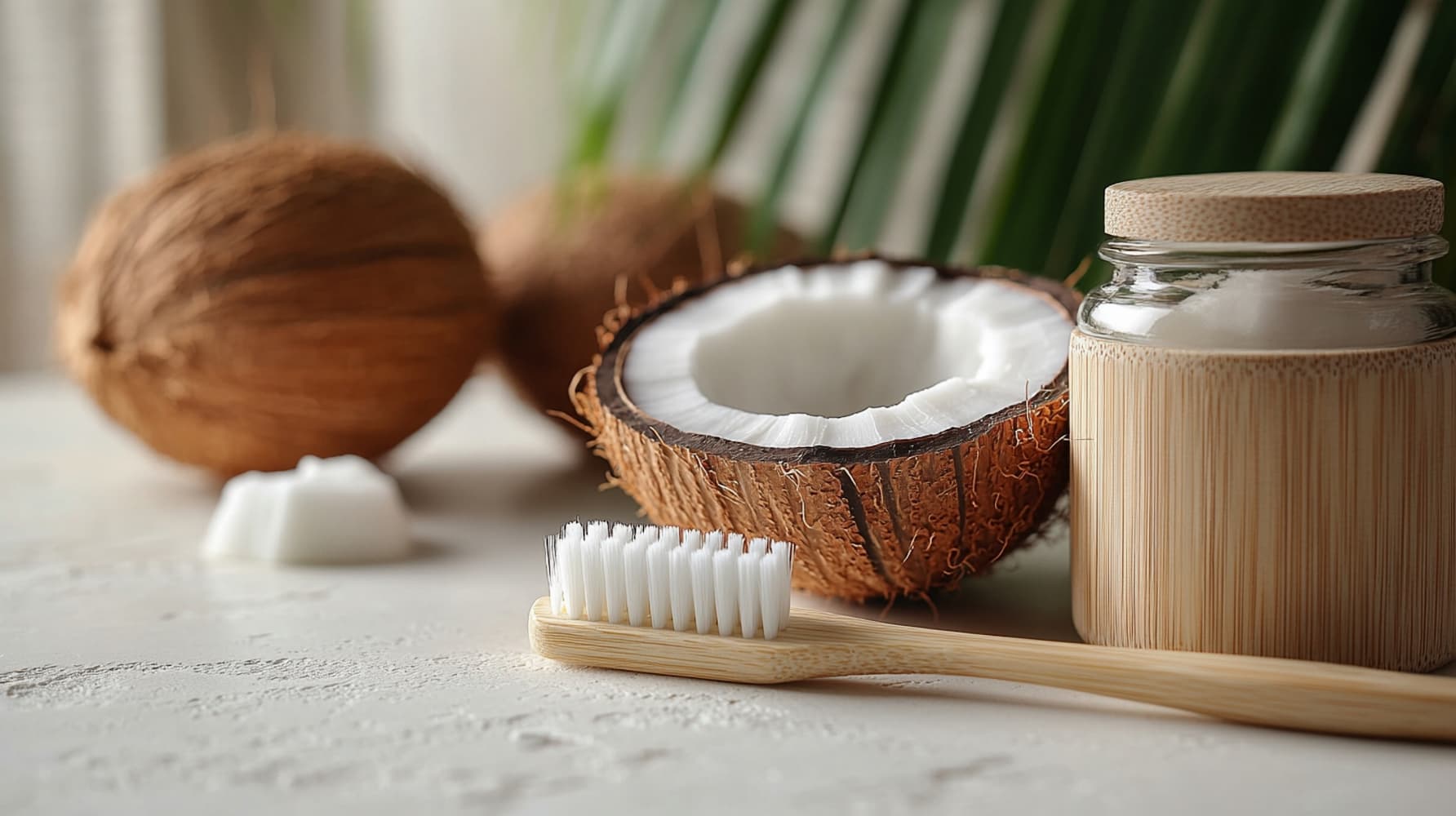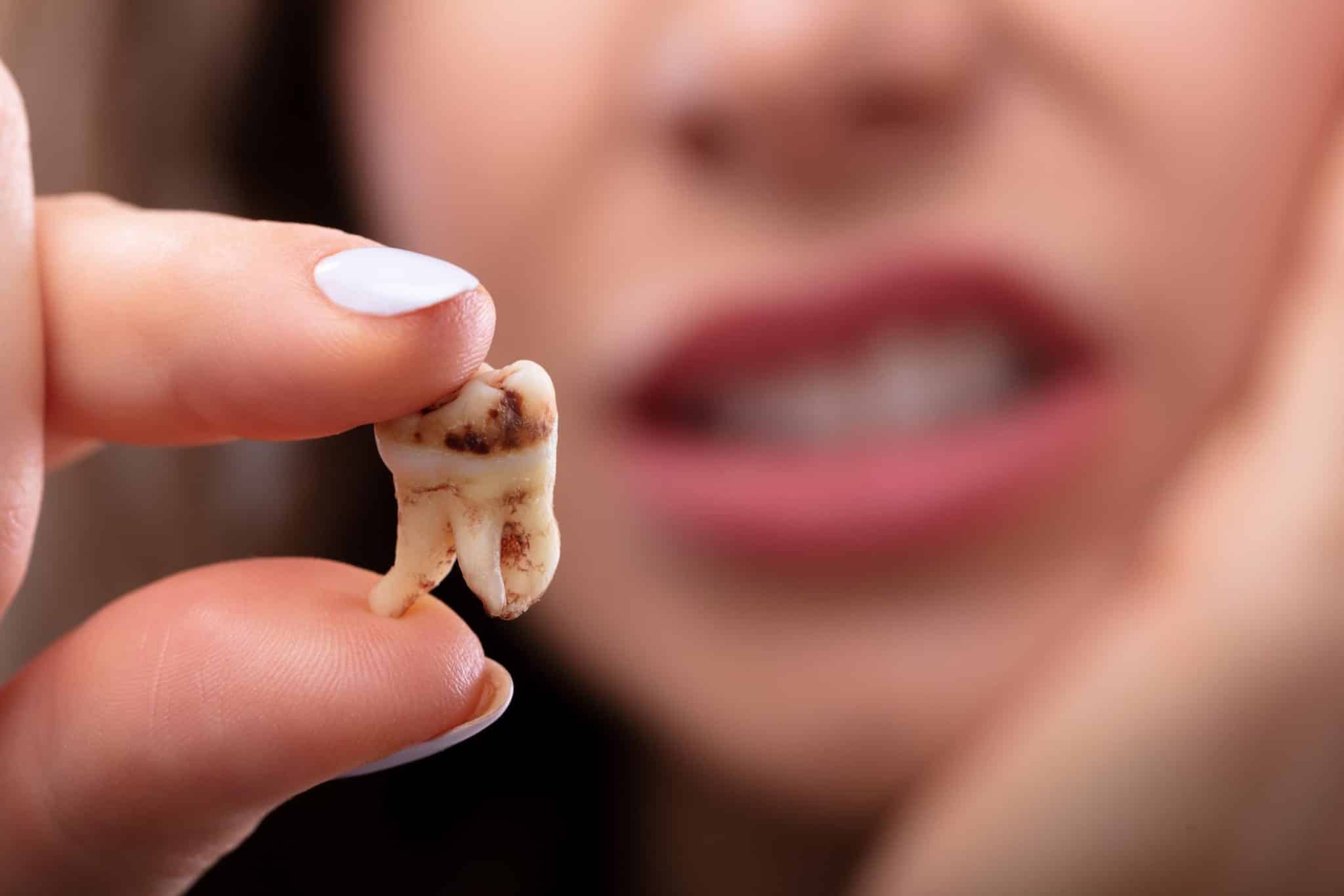In Summary
- Teeth whitening involves treating teeth to restore their whiteness and shine
- Several whitening methods are available
- Only techniques supervised by a dentist or hygienist ensure reliable and lasting results
From DIY techniques to dentist-supervised procedures, teeth whitening is becoming increasingly popular. However, not all whitening methods are created equal, and some can even be harmful in the long run.

What exactly is teeth whitening?
Teeth whitening involves treating the teeth to restore their whiteness and shine. There are different methods available, but not all are equal. It’s essential to understand the pros and cons of each technique before making a choice.
Why consider teeth whitening?
The primary reason for considering teeth whitening is aesthetic. Over the years, depending on our dental hygiene and dietary habits, teeth tend to discolor (becoming yellower or grayer).
To halt this discoloration and restore a brighter smile, dentists offer professional teeth whitening treatments.
What methods are available today?
Les méthodes disponibles en matière de blanchiment dentaire sont multiples et variées. Seulement, certaines sont plus efficaces que d’autres. On fait le point.
In-office teeth whitening
In-office whitening, also known as ‘chairside whitening,’ is the most reliable and effective method for whitening teeth.
Performed by a hygienist or qualified dentist, this method uses a specialized hydrogen peroxide gel that penetrates the tooth’s second layer and whitens through oxidation (following a prior scaling and polishing).
For longer-lasting results, in-office whitening is usually combined with at-home whitening.
At-home teeth whitening
At-home whitening involves wearing custom-made trays to apply a hydrogen peroxide-based whitening product in lower concentrations than those used in clinics.
The process involves two steps. First, a hygienist or dentist evaluates your oral health and takes digital scans of your teeth to fabricate custom trays in a lab.
Then, the hygienist provides you with the trays and a whitening kit along with instructions for at-home use.
You can choose to do at-home whitening only, but results will be slightly less intense than combining both methods.
Natural methods
Many natural products are praised for their whitening effects. But do they really work?
Lemon and baking soda are often cited due to their short-term whitening effects. They erode teeth, which temporarily makes them appear whiter.
However, they also cause irreversible enamel loss, eventually exposing more of the dentin underneath — which is naturally yellow. Long-term use results in yellower teeth.
Tea tree essential oil and oil pulling (rinsing with coconut or sesame oil) show antibacterial benefits and can support oral hygiene, but no studies confirm they actually whiten teeth.
Over-the-counter products and smile bars
Many whitening toothpastes, gels, and mouthwashes are available in stores or online.
Smile bars also offer whitening sessions.
But commercial whitening products are limited to a maximum of 0.1% hydrogen peroxide — the legal limit set by health authorities (compared to 6% for professional treatments).
This explains why these products have limited effectiveness.
How to choose the right method for your needs?
The whitening method best suited to your needs will depend on several criteria.
Based on your aesthetic goals
The first factor to consider is your aesthetic goal. If you’re looking for truly reliable and lasting results, professional treatment (in-office and/or at-home) is the best option.
Once made, the trays can be reused — you’ll only need to buy the whitening gel kit for 20 CHF for future treatments.
Based on your budget
Price is a key factor in choosing the ideal whitening treatment. However, beware of false savings. Over-the-counter products or smile bar sessions may cost less but deliver less durable results.
It’s important to compare prices based on long-term outcomes. Once your professional trays are made, you’ll only need to pay 20 CHF for each new gel kit. In the medium term, professional whitening is far more cost-effective.
CHD Tip
To choose a safe and suitable whitening method, talk to your dentist or regular hygienist. They will guide you based on your needs and recommend the best product for whitening your teeth.
What are the risks and side effects?
When done under the advice of a hygienist or dentist, teeth whitening is not dangerous. You may experience temporary and reversible sensitivity in the dentin, due to the chemical reaction of the whitening product.
However, whitening done without a qualified professional can lead to more significant and sometimes irreversible side effects:
- Premature enamel erosion
- Chronic tooth sensitivity, especially to temperature changes (hot/cold)
- Weakened teeth
- Gum irritation
- Irreversible enamel loss revealing more dentin (causing yellow-looking teeth)
- Without prior clinical and radiographic checks, whitening can cause irreversible damage to decayed teeth or exposed roots
Are there any medical contraindications?
Teeth whitening can only be performed on permanent, mature, healthy, and clean teeth.
Therefore, it is not recommended in the following cases:
- Patients under 18 years old
- No scaling or polishing done in the past 3 months
- Presence of untreated cavities
- On a devitalized (non-vital) tooth
- Weak enamel
- Gingivitis or any gum inflammation
- Periodontitis (gum disease)
- Pregnancy or breastfeeding
- General health issues
Who can perform tooth whitening?
The application of teeth whitening products is regulated at the European level.
As such:
- Products sold directly to consumers or applied in “smile bars” or beauty salons must not contain more than 0.1% hydrogen peroxide
- Whitening products containing between 0.1% and 6% hydrogen peroxide are strictly reserved for dental professionals and must only be applied by a dentist or a qualified hygienist
Did you know
To ensure effective results over time, it is essential to call on the services of a dental professional for teeth whitening. He alone will be able to give you all the recommendations to follow in terms of oral hygiene to extend as much as possible the effects of dental bleaching carried out at the office or at your place.
FAQ
At what age can you whiten your teeth?
Teeth whitening should only be performed on permanent and mature teeth. Dentists generally recommend waiting until at least age 18 — and only with professional guidance.
Is teeth whitening painful?
If done by a dentist or hygienist, the treatment is completely painless.
However, you may experience sensitivity in the dentin due to the chemical reaction with the whitening products. Talk to your dentist if this occurs, so they can adjust the treatment accordingly.
How long do whitening results last?
It depends on the whitening method chosen, your dental hygiene, and dietary habits.
The most durable results come from in-clinic whitening. Effects can last 2 to 3 years with proper hygiene and reduced consumption of staining substances (tea, coffee, tobacco, wine, etc.).
Can you whiten teeth while pregnant?
It is strongly discouraged to undergo hydrogen peroxide-based whitening during pregnancy or breastfeeding.
Pregnant women are more prone to dental sensitivity and oral health issues. Whitening could increase this sensitivity.
Even though no study shows harmful effects on babies during breastfeeding, the precautionary principle suggests avoiding any unnecessary risk.
Should you stop smoking before whitening?
It’s generally recommended not to smoke for a few days after in-clinic whitening to prevent tobacco from interfering with the whitening agents.
Are the results immediate?
Yes. Whether performed in a clinic or at home, whitening results are visible immediately after the session.
How many times can you whiten your teeth in a year?
With a durable and reliable method (in-office combined with at-home), results can last 2 to 3 years, so frequent repetition is unnecessary.
How much does teeth whitening cost?
Prices vary by dental clinic. At the CHD clinics in Geneva, Lausanne, Meyrin, or Yverdon, at-home whitening costs 390 CHF (or 750 CHF when combined with in-office treatment).
Is teeth whitening covered by insurance?
Like most cosmetic dental treatments in Switzerland, whitening is not reimbursed by social security.
Can you whiten teeth after scaling?
To be effective and long-lasting, whitening should be done on healthy and clean teeth. That’s why your hygienist must perform a check-up and complete scaling and polishing beforehand.

